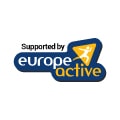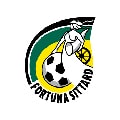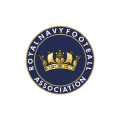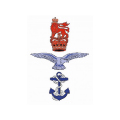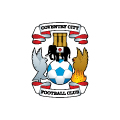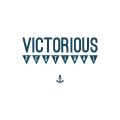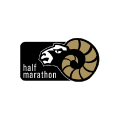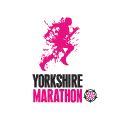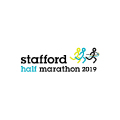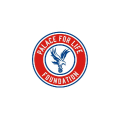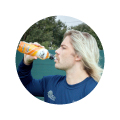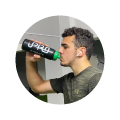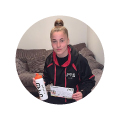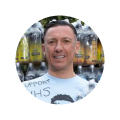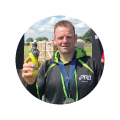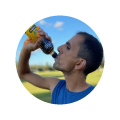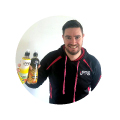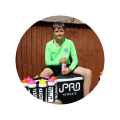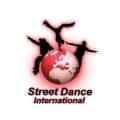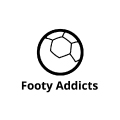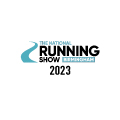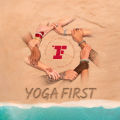Holly Archer - iPRO Athlete
PARTNERS / Ambassadors / Holly Archer
1st October 2021
Sitting Down with iPRO Athlete Holly Archer
With her enthusiasm and lively spirit, professional runner Holly Archer has become an inspiration to many. Following her remarkable talk at The National Running Show South this month, we sat down with Holly to delve deeper into her career, hear about how she balances training with her current job, and learn more about how she takes care of her mental wellbeing after heartbreakingly missing out on the Tokyo 2020 Olympics.
Q: Hi Holly, thank you for taking the time to sit down with us. To begin with, what inspired you to go from casual runner to professional runner?
Ever since I was a little kid I’ve watched these Olympians on the TV winning gold, and I’ve always wanted to achieve it for myself. I think the “lightbulb” moment was when I realised I could actually be up there with them, which was probably when I won my first major medal during the British Indoor Championships 1500m in Glasgow 2020. I think that just fuelled me, and I realised that I did belong there, and I could win. February 2020 was a moment that turned my attitude around to want even more.
Q: Did you feel there was a natural progression from casual runner to a professional athlete?
Absolutely. I did the whole college system thing and it’s basically semi-professional when you go out to the US. You go on a scholarship, and you’re out there to compete and train. So, I do feel like I’ve had a natural progression, I just haven’t had the same progression as other elite athletes. You know, as a footballer you get signed under 18 and they get exposed to it a lot younger. I’ve been exposed a lot older in terms of my career, but I’m still experienced, and I know what I need to do.
Q: It all happened quite quickly for you?
I mean you have to [move quickly]. Once I won my Indoor medal, it was three months until the trials for the Olympics. You have to believe in yourself or not, there’s no time for doubting yourself. You’ve got to be all in or all out.
Q: The first moment you pictured yourself at the Olympics, what did that feel like for you?
It was when I came off the track in Poland and I medalled [silver]. To come second [in the [European Indoor Championships], you think how many professionals from different countries in Europe have paid to train full-time. Knowing that I hadn’t done that - I had so much more to give. I was right after Poland when I started picturing that I could make the Olympic team. I was excited. I believed I could do it. I knew what I needed to do, and I just wanted to get it done. The time went quicker than I expected, and after each race came and went, I realised that not every race was going to be perfect, and there wasn’t much time to make my Olympic dream become a reality.
Q: What did you observe the most from professional runners? Were there any key things you saw in them that you incorporated into your training and competing?
Structure and consistency. If I’m training with a pro group, they meet on time every day and get their warmup done to the highest level. Right now, what I’m doing is trying to fit in as much as I can do after work, getting in a track session, and going home. As a professional, one thing I’ve learned is everything revolves around your training. Each training session isn’t just about turning up and performing. Each training session has its purpose.
Q: What is it like training and managing your job? How did you keep motivated and energised?
I think once you make a team you don’t have a choice. If you don’t keep training when a race is coming up, you’re going to end up not getting to where you want to be. I wanted to win, so I had no choice. It was a case of knowing when I needed to get a run done and just getting it done. So, it was more about realising races are going to happen regardless of my job and how can I make sure my training is getting done to the best of my ability. Having a job does help. It’s a good distraction because sometimes you just want to come away from thinking about the sport. But on the other hand, you don’t want 8 hours of your day preoccupied with work.
Q: When people now call you a pro athlete, how does that make you feel?
I don’t know if I’ve been called a pro athlete [laughs] but it’s definitely changed my attitude in terms of holding myself a bit more accountable in training sessions. I used to turn up thinking no one was watching me. Now when I go to races, people are wanting to beat me. That term [pro athlete] and putting a medal to my name means I have to continue competing at that higher level.
I feel like the work I’ve done in the last fifteen years has been worth it. The sacrifices I’ve given, leaving my family at Christmas, and going to the states for five years. Putting everything in to become number one or two in the country is hard. There are thousands of people in this sport and to finally be up there in the top five consistently, it does feel good. It feels like this time hasn’t been wasted. Not that it ever would have been, but in your head you have dreams and you start questioning whether is it just a dream or can you actually do it. It’s good to feel good enough.
Q: Being a professional runner, is that a dream you’ve always had since you were a kid?
I don’t think I ever believed I could be a professional runner and make a career out of it. I’ve always loved running and I liked racing. I’ve just been very tenacious and competitive. I don’t do running just to run. I always do running with a goal. I don’t like to just go and take part [laughs]. There’s always an end goal for me. It’s all about pushing myself to be my best and being a role model by proving to other people that you can be good at it if you set your mind to it.
Q: Were there any other sports that might have swayed you?
It’s always been running. I wasn’t very good at team sports because I would get frustrated [laughs].
Q: You mentioned at The National Running Show South this month that you’re doing altitude training again in the US. Could you explain what that is?
If you’ve ever been skiing high up in the mountains you’re at about seven thousand feet. It’s actually at the level that a plane glides. That’s how high you are when you’re training, and what it basically does is a biological change in your body. You have to be there for at least three weeks for it to start working. You can’t be there for just a week [and see a change].
When we go up there the oxygen is extremely thin, so you find it hard to breathe. Your body then compensates by producing more red blood cells because it can’t get oxygen quick enough to the muscles. Our bodies are really good at adapting and knowing what to do. So, when you’re at altitude, your body produces more red blood cells, and when you come down you have way too many red blood cells and that’s what helps your running. It only works for around 2 or 3 weeks and then it starts to wear off.
Q: Now you’re training all over again, what are you currently preparing for?
There are four main championships coming up. Because of Covid-19, they’ve all been squished into next year. We’ve already had two major competitions: Olympics and the Europeans. Next year you’ve got the World Indoors, so that will be first in March. I’ll do the whole process again: go away in January, get the red blood cells training done, come back to run at trials, and try to reach the top two.
In the summer, there are three events within six weeks. You’ve got one in Oregon [The World Athletics Championships]. You’ve got the Commonwealth Games in Birmingham, and then you’ve got the European Championships in Munich, Germany. So, there’s a lot of racing which means a lot of opportunities. It also means a lot of people will get injured and pull out, so I’ve got to stay on it next year and make sure I keep bouncing back.
Q: What has been the biggest thing for you working with iPRO?
For me, it’s about people having your back and in your corner believing in you. Financially, it’s been helpful with expensive flights and accommodation. But also, it’s about having a brand that wants to believe in your journey. I go to training not only for myself but for a brand that wants to be a part of it. I don’t want to let them down. I want to do it for them and myself, which makes it bigger than just me. It becomes doing it for the people who are around me.
More than anything it’s not feeling like I’m pressurised to run or requiring me to make the Olympics otherwise they’d take away my sponsorship. They just want to be there and be a part of what I’m doing. I did a lot of self-reflecting after not making the Olympics, and one of the biggest things I realised as I am successful. Because so many people have watched my journey and been inspired.
Q: Finally, how do you look after your mental health after having a tough year?
This year has been the biggest year for me. Normally, I’m like “I don’t need any help, I’m strong, I’m tough as nails, I bounce back, and I don’t let anything get to me”. But this year the pressure was on. When you’re exposed to more people, and you tell more and more people about what you’re doing, you become more vulnerable. It's one thing saying to yourself I’m going to run and not tell anybody my time and pace. But when everyone is watching you, they’re watching your time and they know exactly what you need to do. That kind of pressure is hard to deal with mentally from an athletic and professional standpoint.
This year was tough to then realise how I bounce back from it. I really struggled after the Olympics to get out of bed sometimes. I felt like I let myself down and other people down. I felt like I could have been Olympian, and I could have been on that plane if I ran one second quicker. I had beaten myself up mentally when really I should have taken a step back and defined what is success is and be happy with it. I actually overachieved. I was never meant to make the Olympics. We always want more. There’s never an end to anything. So, I think it’s so important to define what you want to do in advance and tell yourself that’s it and be happy with it. I achieved more than I should have last year, and I still wasn’t happy with it. We’re all guilty of that as humans!






